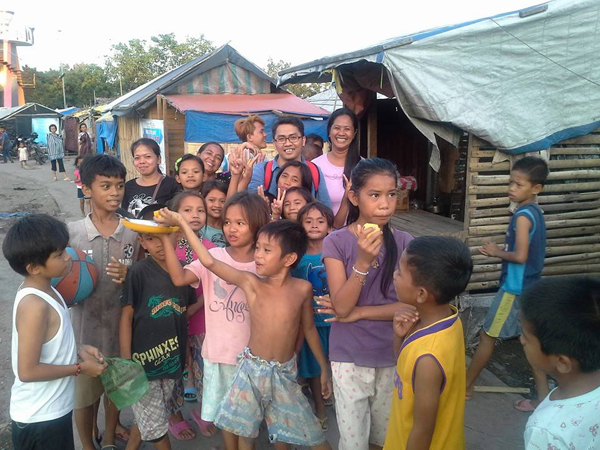HONG KONG/PHILIPPINES: The Forgotten Ones of Zamboanga
by Danilo Reyes
(Note: this article was first published in the March 15, 2015 issue of the Sunday Examiner)
The little girl asked me, “Why did you come here?” She is one of nearly 7,000 people holed up at an evacuation centre in Zamboanga City.

Mostly Tausug people, one of the Moro ethnic groups in Mindanao and Sulu archipelago, they were forced to flee their homes because of the fighting during the siege of Zamboanga in September 2013.
Amused by her question, I replied, “I’m here to listen to your story.” Then a boy, responded from somewhere, “We don’t have a story. We have no story to tell.”
The conversation I had with these children can tell us what is in their minds and how they identify in the society in which they lived.
When I think of the little girl’s question, I ask myself, “Why did I come here?” To my mind, to write stories of people and how society sees them, to listen to and talk with them. Understanding their insights is a must. Without it any writing is artificial, pretentious and gives views lacking depth.
Each of us has our own story, but why do these children think they have no story. Why do they not see their own selves as story in their own right? Their person, their land and social relations – notably the Sulu archipelago – is rich in history.
Before the Philippines became a nation-state, the Sultanate of Sulu was already firmly established.
The Sulu archipelago – Basilan, Sulu and Tawi-Tawi (BaSulTa) – in the southern part, is where the ancestors of these children came from. To identify as native descendants is a heritage to draw pride from.
The roots of this identity go to deeper than Asia’ Latin City (Zamboanga City), a city that wants its identity lie in speaking the Spanish-based language, Chavacano.
The ability of the children to take pride in their own history, their own value, their own heritage, is what the war destroyed. It is in mind. In war, those in power win by taking away what conquered could take pride from.
And, to see this unfolding in the minds of these children is to me deeply disturbing. However, it is not enough to take pride, we also must reaffirm their pride in their own identity.
Speaking their own language, Tausug, tells us they connect it strongly with their identity. It is good for these children. Thanks to my interpreter I was able to bridge the communication barrier between me and them to some extent anyway.
To understand them, we must also take away our prejudice and biases. We have to see them as equals.
It is not that these children are uneducated – just because they have not learned English or a Filipino language fluently. But that is why they cannot tell a story, because people lost interest in listening.
After nearly year-and-a-half since they forced to leave their homes, keeping interest in their present condition is a challenge.
But my conversations with them tells me why. Some evacuees, including these children, have long wanted to back home, but they are prevented by the police and military.
I understand that the safety of the evacuees is of the utmost priority; however, after over a year, it is unconvincing to say that the threat remains.
How can there still be a risk when soldiers and police now control the community, not armed rebels? Threat and risk from whom?
Keeping evacuees in shelter poses a far bigger threat to life than being in the community where they once leave.
As of July 2014, Mindanews reported that number of death had reached 143 due to “pneumonia, asthma, measles, dengue fever, and severe acute malnutrition al l caused by their poor living conditions.
To me the girl’s question and the boy’s response were profound. They might have understood things I have not.
In the massive displacement due to the conflict, I had thought all of us have the responsibility to care for those in need. But the girl was right. There would not been any need for us if they were allowed to go home.
If the objective of keeping them in the shelter is primarily to preserve life and property, the local government and the local sector have already failed. The number of deaths in the evacuation centres far exceeds the number of killed in September 2013 fighting.
If the government cannot preserve and protect these people lives, they should let the evacuees go home and care for themselves.
The children’s question, “Why do you come?” and their comment, “We don’t have story”, tell us that it is rather exceptional for them to be visited at the time when attention on them is lost.
But after chatting, playing and going around the shelters with these children, another question I asked of me, “When are you coming back?”
It is a hard question. I know I am not coming back soon.
This is the story of these children. I know it is a story worth telling.
# # #
About AHRC:The Asian Human Rights Commission is a regional non-governmental organisation that monitors human rights in Asia, documents violations and advocates for justice and institutional reform to ensure the protection and promotion of these rights. The Hong Kong-based group was founded in 1984.



